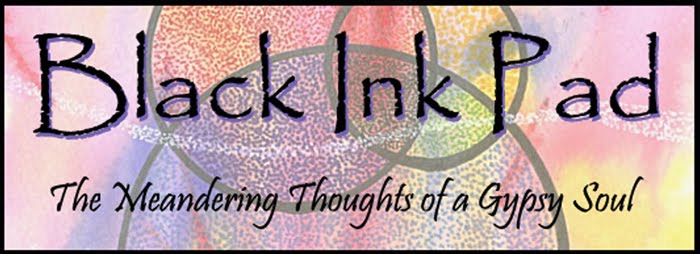Pen shell stamps courtesy of Fred B. Mullett
I've come to the conclusion that it isn't death that surprises us, but the grief that follows.
We're actually very used to death. We are, after all, born dying. Every day cells in our bodies die and slough off. We watch as Summer changes to Autumn and the gardens we planted wilt and join the earth from which they sprouted. We shed a tear for the elderly when they pass and comment that they lived good, long lives. We hear about death in the news every day.
We let our dreams die--whether by choice or by circumstance. We pronounce death in marriages and relationships that don't work. Inanimate things break and fall apart and we declare them dead. Even the food we eat (unless live guppies are part of your diet) is dead.
Death is no stranger to us. We see it coming from nearly every angle. Sometimes death is a good thing. We chop up dead wood and use it as fuel to warm us. We harvest tomatoes and zucchini from dying vines. We've even learned how to transplant organs from a dead person to a living one to improve chances of survival and quality of life.
I've had great fortune to have lost many people in my life to death. Oh, I'm not callous about it. I use the word fortunate because each time I've had to say goodbye forever to someone, I have learned from it. I've learned, not only how precious is this life, but about my place in it. I've learned to live from those who have gone. For that, I am thankful, and grateful and, yes, fortunate. I feel much like Celie in The Color Purple, "I'm here. Dear God, I'm still here!"
The last time I was surprised by death was when I was in my teens and my beloved cat died. Since then, I've lost (curious word to use there... as if I've simply misplaced someone) many people in my life--beloveds all--people I was attached to whether by blood or by Universal force. The deaths didn't surprise me. Granted, many of those people were sick or elderly, so the inevitable was glaringly obvious, but still... With each of them there was a moment, just before, when I thought, "Prepare yourself. It's coming." And, as much as anyone can be prepared, I was.
So, the deaths themselves didn't shock me. It was, and continues to be, the grief that surprises me. Initially, for me at least, grief is like a vast undulating sea - I always forget how exhausting it is. I always forget those first feelings of everything feeling so weighted down and hard to breathe and seemingly unending. Like treading water, there's a frantic feeling of desperately wanting to lie down on a sandy shore and sleep, but all I can do is keep waggling my feet back and forth and hoping to come out of it eventually.
And I always do. I wake up one day and realize that it's easier to breathe and it doesn't hurt to blink. Suddenly I'm capable of making decisions again without feeling like I'm blindly throwing darts at a board and hoping I don't take out somebody's eye in the process.
Then the rogue waves* begin. Those never go away. Not ever. There's no telling what will trigger them and there's no warning. Rogue waves are the real surprise of grief.
I lost my father well over 30 years ago, and to this day, a cold, damp, smokey Fall day will make my eyes sting with tears. I lost one of my dearest friends over 20 years ago and I still can't pick up a book by Amy Tan without feeling my lip quiver, because she gave me her copy of The Joy Luck Club (which I still have) to read. My beloved mate has been gone for over 8 years and Yes's song Roundabout nearly flattens me when I hear it because we used to sing it loudly as we drove around Lake Sammamish, looking for glimpses of Mt. Rainier shining like a diamond through the clouds. "In and around the lake... mountains come out of the sky and they stand there..." The other day I had a question about my Hungarian heritage and thought, "I'll just text Mom and ask h.... damn it. Who's going to answer these questions for me now?!"
Rogue waves, man. Rogue waves. They will knock your boat sideways and leave you dazed and wondering which is the way back home. We can handle death. It's the sorrow that comes after that's the kicker. It's the sadness that springs from almost nowhere that gets us. But I've learned from that too. I've learned that when a rogue wave hits, all I can do is let it hit, let it wash on over, wring everything out, take a deep breath, and keep paddling.
*Rogue waves are large, spontaneous surface waves that occur far out in open water. They are defined in oceanography as waves whose height is more than twice the significant wave height. Rogue waves are not necessarily the biggest waves; however, they are unusually large waves for a given sea state.

